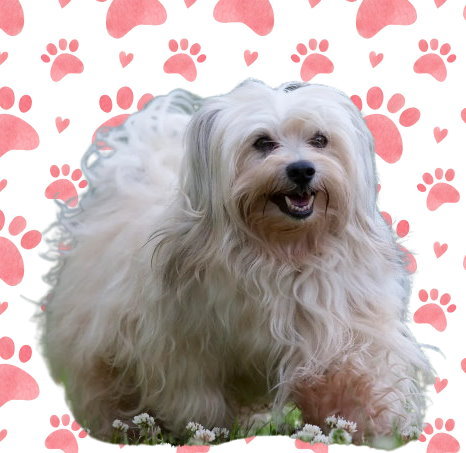Welcome to Dog Training Newbies !
Welcome to Dog Training Newbies !

As your Havanese enters their senior years, their needs evolve, requiring special attention to ensure they remain comfortable and happy. These charming companions deserve the best care as they age, which involves understanding their changing requirements and adapting accordingly.
One of the first aspects to consider is diet. Senior Havanese may benefit from a diet lower in calories but rich in essential nutrients. Foods fortified with omega-3 fatty acids support joint health, while antioxidants boost their immune system. Consulting your veterinarian can help you choose the right diet or supplements tailored to your dog’s specific needs.
Regular veterinary check-ups are crucial for monitoring your Havanese’s health. As they age, they become more susceptible to conditions such as arthritis, dental disease, and heart issues. Routine exams allow for early detection and treatment of potential problems. Your vet may recommend specific tests to assess organ function and overall well-being. Maintaining up-to-date vaccinations and dental care is also essential in preventing infections.
Exercise remains important for senior Havanese, but their activity level may need adjustment. While they may no longer be as sprightly as in their younger years, regular, gentle exercise helps maintain muscle tone and joint flexibility. Short, leisurely walks and low-impact activities like swimming can be beneficial. Always watch for signs of fatigue or discomfort and modify their routine as needed.
Creating a comfortable living environment is vital for your aging Havanese. Provide a soft, supportive bed to ease joint pain and ensure their resting area is easily accessible. Consider using ramps or steps to help them navigate furniture or stairs. Keeping their living space free from hazards reduces the risk of falls or injuries.
Mental stimulation is key to keeping your senior Havanese engaged and happy. Interactive toys, puzzle feeders, and gentle training sessions can offer cognitive challenges. These activities help prevent boredom and maintain mental sharpness. Social interaction remains important, so continue involving them in family activities and provide opportunities for safe play with other dogs.


Monitoring your dog’s behavior and physical condition is crucial for identifying any changes that may indicate health issues. Look for signs such as increased thirst, changes in appetite, or unusual lethargy. Early detection of symptoms can lead to more effective treatments and better outcomes for your pet.
As your Havanese ages, they may experience sensory changes, including diminished vision or hearing. Be patient and make adjustments to accommodate these changes. Use hand signals or touch to communicate, and ensure their environment is safe and secure to prevent accidents.
Pain management is another important aspect of senior care. Arthritis and other age-related conditions can cause discomfort, so consult your veterinarian about appropriate pain relief options. They may recommend medications, physical therapy, or alternative treatments such as acupuncture to improve your dog’s quality of life.
Finally, shower your senior Havanese with love and attention. As they age, they may become more dependent on your companionship and reassurance. Spend quality time together, whether through gentle grooming sessions, cuddling, or simply sitting together. Your presence provides comfort and strengthens the bond you share.
In conclusion, caring for a senior Havanese involves a comprehensive approach that addresses their changing nutritional, physical, and emotional needs. By adapting their diet, ensuring regular veterinary care, providing appropriate exercise, and maintaining a stimulating environment, you can enhance their quality of life. With patience and dedication, you’ll ensure your loyal companion enjoys their senior years with comfort and happiness.